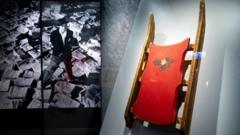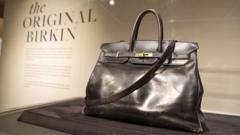A Paris court has provisionally blocked the auction of La Pascaline, a historic calculating machine designed by the French mathematician Blaise Pascal in 1642. The ruling has halted plans set by Christie's auction house to sell the device, which was projected to fetch between €2 million and €3 million.
Christie's had described La Pascaline as 'the most important scientific instrument ever offered at auction'. The court's decision followed legal appeals from scientists and heritage advocates seeking to classify the device as a 'national treasure', securing its protection under France’s heritage laws.
Pascal, who was only 19 years old when he created La Pascaline, is regarded as a pioneer in the history of computing. To date, only nine such machines are known to exist. Experts highlight this invention as a significant milestone in the gradual transition towards mechanizing human thought.
The court expressed serious doubts regarding the legitimacy of the export authorization that had been provided by France's culture minister earlier this year, casting doubt on the future of La Pascaline. The judge underscored its historic and scientific value, which may indeed warrant stronger protections.
The decision of the Paris court has been welcomed by groups advocating for France's cultural heritage, such as the Association Sites & Monuments. They view this as a crucial step towards safeguarding significant elements of the nation’s scientific legacy.















